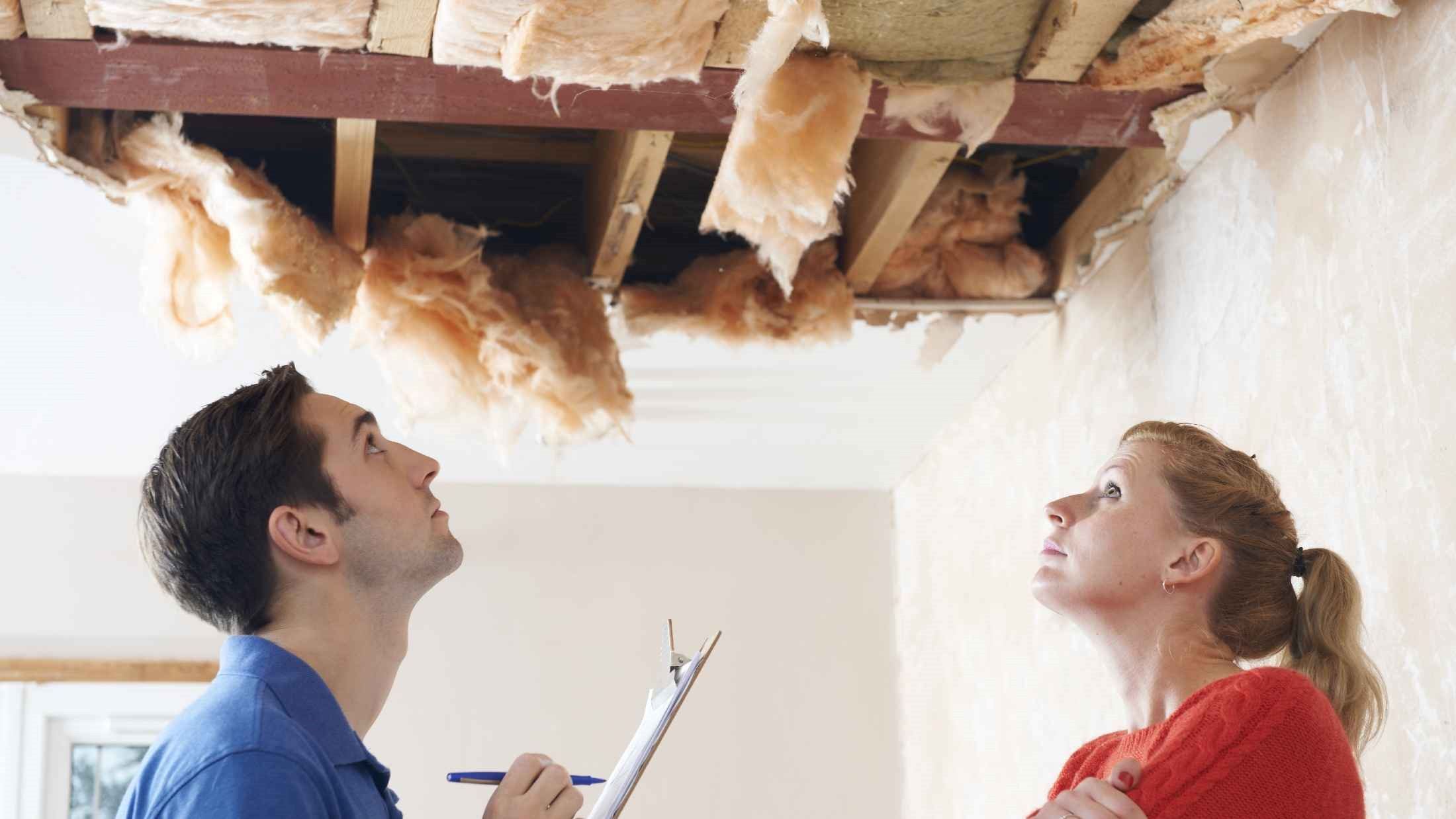Cowboy builders can turn your home into a living nightmare, leaving you out of pocket and left with poor quality work.
Avoiding cowboy builders is easy once you know what to look for. And, if you’ve recently found yourself a victim of a cowboy builder, our guide will show you what to do next:
- Protecting yourself from a cowboy builder
- What to do if you’re a victim of a cowboy builder
- Does home insurance cover building work?
Protecting yourself from a cowboy builder
The best way to stop yourself from falling foul to a cowboy builder is to look for warning signs before parting with any money. These include:
- Asking for payment upfront in cash, even before any work has started.
This may be to avoid VAT, which is another no-no. It’s rare a good business will operate in this way, and paying cash upfront could prevent you from being able to claim any money back. - Not offering a contract.
If your builder won't sign a contract, that’s a big red flag! - Not providing written estimates and costs.
Being able to accurately price and provide a timeline for the job is another mark of a great builder. - Someone asking for work on your doorstep.
If someone shows up out of the blue telling you they’ve noticed issues with roofing or windows that they can fix, don't let them in. If you're concerned there really is damage, arrange an independent repairer when you can. - Having no references.
If they don’t have glowing references from previous clients, they might not be all they seem. Ask builders for references or look on sites like checkatrade.com for trusted reviews. - Having no premises.
Your builder should have verifiable premises and a landline phone number. - Not being a member of a trade group.
Although these documents can be faked, you should be able to verify your builder by getting in touch with the trade group they're part of.
If you spot any of these red flags, then it’s best to steer clear.
Remember, the cheapest job doesn’t always work out to be the most cost effective in the end. Doing your research is key! Here are two more ways you can protect yourself from dodgy builders:
- Going with recommendations through friends or family, is a good way of knowing you can trust the person completing the work.
- Try to use a credit card to pay for jobs between £100 and £30,000. That way you'll have extra protection to claim money back under the Consumer Credit Act if anything goes wrong.
What to do if you’re a victim of a cowboy builder
If you’ve found yourself a victim of a cowboy builder, there are a few things you need to do.
- Report them to the police.
Although the lines between what's criminal and what's just bad practice can be blurred, your bad building work could constitute fraud.
Make sure you give the police as much information as possible. Tell them what the problem is, who the builder was, and share any paperwork, photos, videos, and any notes of conversations between you and the builder. - Contact Trading Standards.
Trading Standards may help you negotiate a settlement with your builder and give you advice on what to do next.
They may recommend you contact your local Citizens Advice centre to find out whether any of your neighbours have had similar experiences. They'll then pass your complaints to your local authority Trading Standards service. - Consider making a court claim.
If you've tracked your builder down and they won't refund your money, you can also take them to court.
This is also why having a contract in place is important. If you take legal action, you’ll be in a better position to fight your case with physical evidence of an agreement between you both.
Does home insurance cover building work?
Standard home insurance policies don’t usually cover significant building work. Your builder's liability insurance will normally cover any work they do.
That's why dealing with a reputable builder is important - cowboy builders may not have insurance. This can leave customers in difficult situations if they perform a shoddy job and the home becomes dangerous, or there’s damage to a neighbour’s property.
To check whether you’d be covered for any building work, check your policy wording. AXA customers can do this in their online account.
If you're having work done to your home, it's important to keep your insurer informed of renovations. This will make sure your property is properly covered by your home insurance policy.
Doing your research is vital to make sure you don’t become a victim of a rogue trader. Remember, if it seems too good to be true, it usually is!












